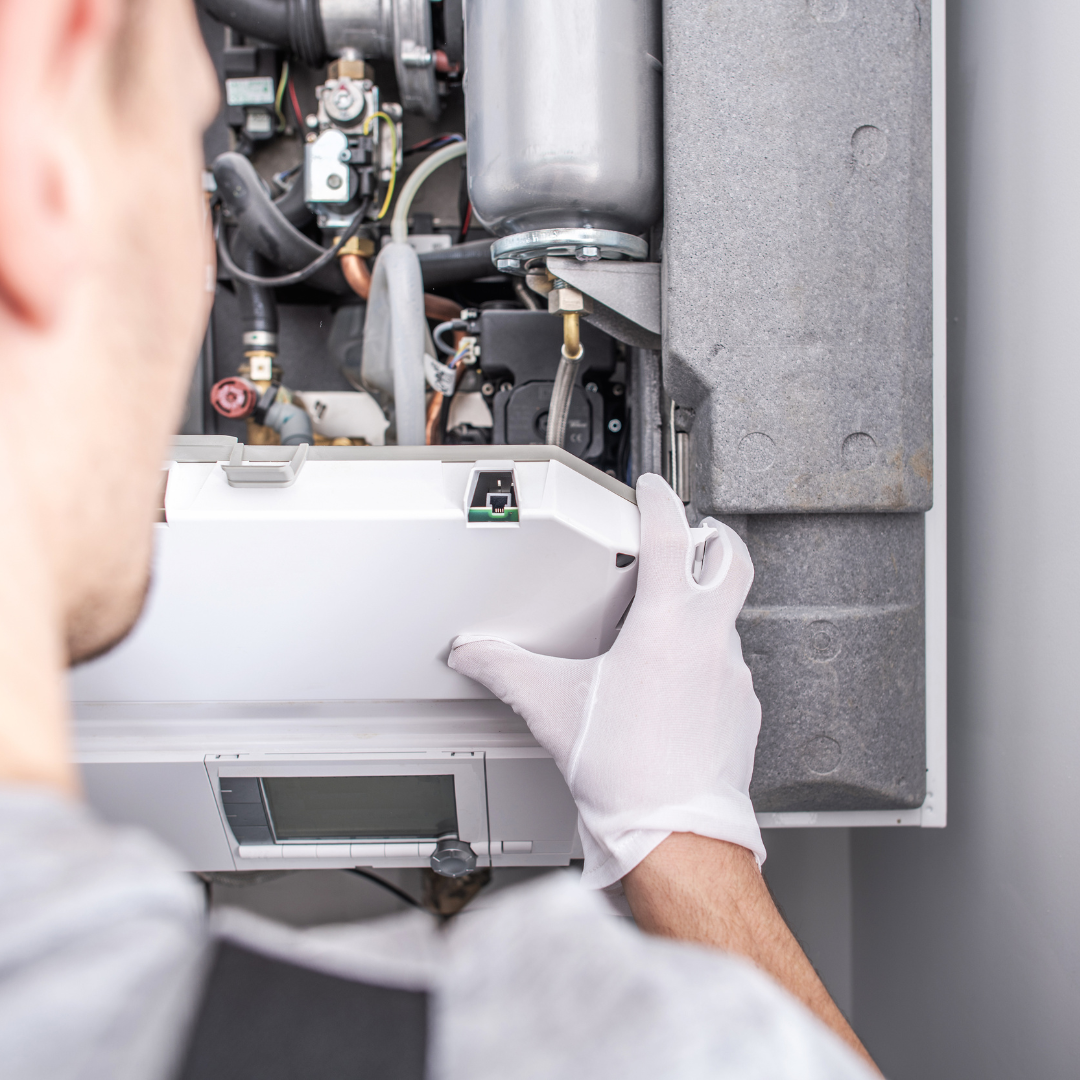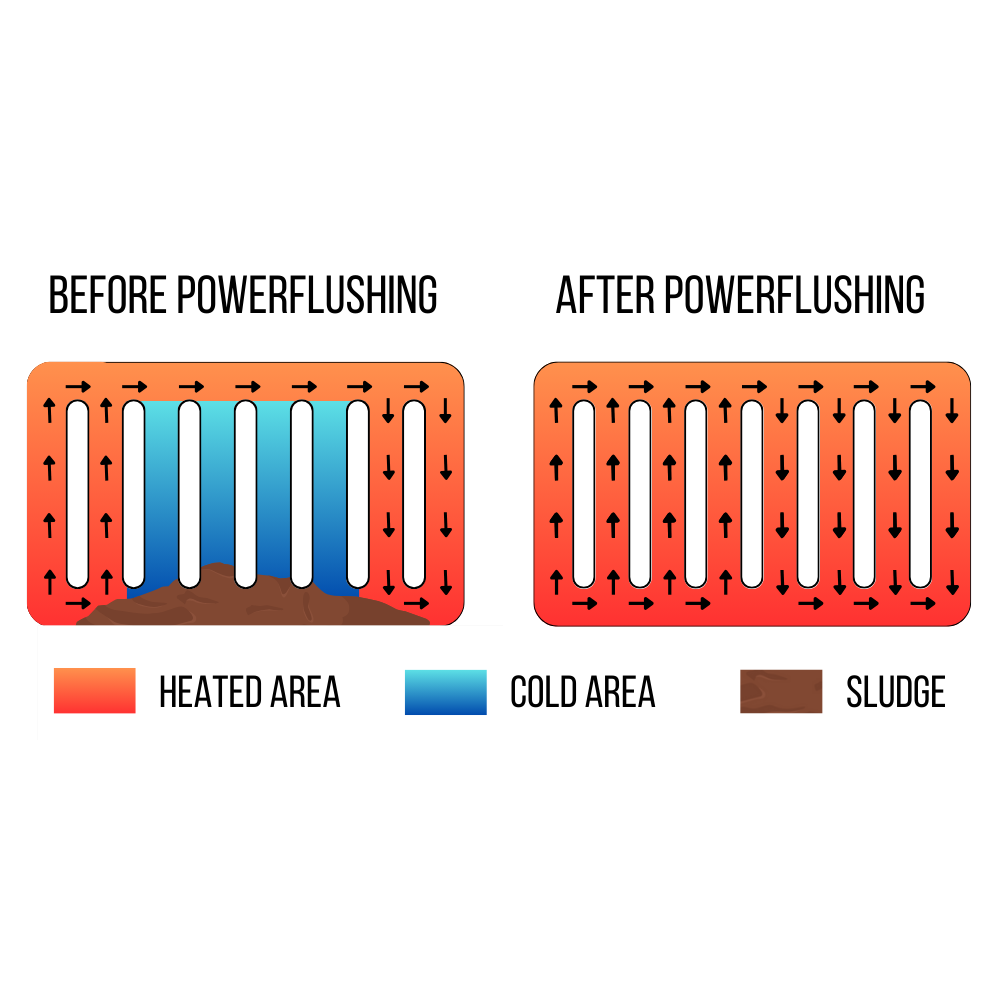As winter approaches, ensuring your central heating system is in peak condition becomes paramount. The last thing any homeowner wants to face is a malfunctioning central heating system. Not only can it be an expensive hassle to repair or replace, but the inconvenience of cold water and chilly rooms can be unbearable in cold weather. However, you can prevent this. With a few essential central heating care tips, you can safeguard your home from unexpected heating system breakdowns, reduce your energy bills, and ensure your living spaces stay warm and cozy throughout the cold winter months. In this comprehensive guide, we'll explore the best techniques for central heating care and provide valuable insights to keep your heating system in the best shape.
Tip 1: Regular Professional Servicing
Schedule annual check-ups with a qualified heating engineer. They possess the expertise to uncover potential issues before they turn into costly problems. Experts will thoroughly inspect your system, ensuring all components function optimally. Regular servicing not only extends your system's lifespan but also maintains its efficiency, saving you money on heating bills in the long run.
Tip 2: System Flush
A central heating system can accumulate debris and sludge over time, obstructing heat distribution and reducing efficiency. To counter this, consider periodic system flushing. Two primary methods are power flush and chemical flush. These methods use chemicals and water flow to break down sludge and debris and flush them out of the system. After flushing, an inhibitor is added to prevent contaminants from building up again and prolong the system’s lifespan.
Tip 3: System Familiarization
For effective central heating care, you need to know your system. This includes understanding your system's operation, the type of boiler you have and how to control it. Understanding your boiler's controls will help you optimize settings, reduce energy consumption, and keep your home warm.
Tip 4: Old Boiler replacement
If you have an older boiler, consider replacing it with a more efficient condensing boiler. Older boilers, particularly those over 15 years old, tend to be less efficient and cost you more money in the long run. Upgrading to a modern boiler not only saves you on heating costs but also contributes to reducing your carbon footprint.
Tip 5: Year-Round Care
Your central heating system may not be in frequent use during the summer but neglecting it during this time can be harmful. It’s advisable to turn on your heating system for a few minutes once a month to ensure it runs smoothly, preventing any unwelcome surprises when the cold weather sets in.
Tip 6: Regular Checks
To ensure your heating system functions optimally, follow these basic checks:
- Inspect your radiators for even heating. If you spot cold spots, bleed them to remove trapped air.
- Ensure proper insulation for water cylinders and pipes.
- Monitor your boiler's water pressure, aiming for 1-2 bars.
- Install effective carbon monoxide detectors to quickly detect gas leaks.
Tip 7: Radiator Balancing
Achieving consistent warmth in every room of your home requires balancing your radiators. This process ensures that each radiator heats up evenly and efficiently. By doing so, you prevent some radiators from becoming excessively hot while others remain lukewarm or cold. Balancing radiators takes only a few minutes but can significantly reduce your energy consumption while maintaining a cozy ambiance.
Tip 8: Additional Tips for Efficiency
Insulate your home to prevent heat from escaping. Address issues like gaps around windows, door frames, and loft to keep the warmth in.
For radiator efficiency, consider thermostatic radiator valves (TRVs). They allow you to control each radiator's temperature individually, reducing heat output in rooms not in use.
Clean your radiators - dust and dirt can reduce their efficiency. Avoid using abrasive materials or bleach because they can scratch and damage radiators. Instead, use warm water and gentle washing-up liquid. To remove dust between radiator fins, use a hairdryer.
Don't obstruct radiators with furniture or curtains, as it hampers their efficiency.
Effective central heating care is essential for ensuring warmth, comfort, and cost savings in your home. By following these maintenance tips and prioritizing radiator efficiency, you can enjoy a cozy, energy-efficient winter season. With these strategies in place, you'll be well-prepared to tackle the colder months while minimizing your carbon footprint and maximizing your savings.



